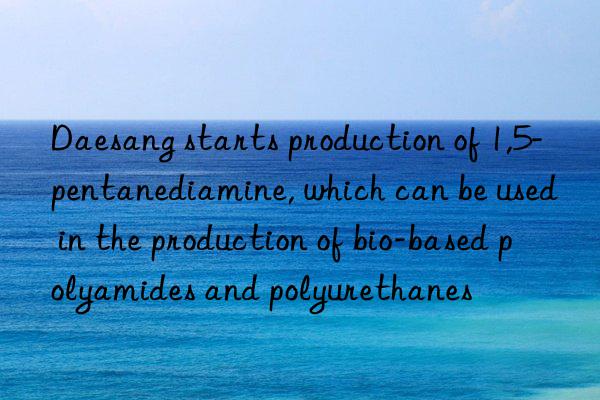
Korean food company Daesang recently said it had completed sample production of 1,5-pentanediamine, a bio-derived chemical that can Substitution of petroleum-based substances in the production of polyamides and other polymers.
This is to expand its business in the field of white biotechnology - a process that uses the living cells of plants, enzymes and microorganisms to produce value-added chemicals, materials and fuels at a low carbon cost .
Daesang said, "We are conducting research and development of various materials to build an eco-friendly white bio-ecosystem in line with the global net-zero emission trend."
1,5-Pentylenediamine is mainly used as a raw material for the production of polyamide and polyurethane. It is produced using lysine, an amino acid that is added to animal feed to promote growth and development.
This method of production is less carbon-intensive than traditional petroleum-based materials, making it a more sustainable option. Polyamides and polyurethanes produced from 1,5-pentamethylenediamine are used in products such as fibers, plastics, paints and inks.
Daesang will produce the chemical using fermentation manufacturing technology used by its materials business unit. Since the company already produces lysine at its bio-factory in Gunsan, Jeollabuk-do, South Korea, the company will be able to obtain key raw materials at competitive prices.
Although it is in the early stages of commercialization, the potential demand is expected to reach 1.6 million tons by 2026 if it fully replaces petroleum-based alternatives.
Currently, while conducting sample testing, the company is focusing on capturing the needs of the domestic and international markets, especially for manmade fiber companies and other potential customers.
Daesang is also developing thermoplastic starch, a biodegradable plastic material made from cornstarch. With its expertise in starch products, the company is collaborating with research institutes for research and development.
The company's ultimate goal is to localize and diversify the production of bioplastics to reduce South Korea's dependence on imports of such products.



 微信扫一扫打赏
微信扫一扫打赏
